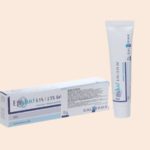Aluminum pots and pans have long been a familiar fixture in Vietnamese household kitchens due to their affordability, durability, and excellent heat conduction. However, alongside these advantages, there are also some potential health risks associated with using aluminum cookware. So, is it advisable to cook with aluminum pots and pans? What precautions should be taken to ensure safe usage? Let’s explore these questions together!
1 Should You Use Aluminum Cookware?
The decision to use aluminum cookware comes with its pros and cons, which should be carefully considered.
Advantages of Using Aluminum Cookware
-
Affordable: Aluminum pots and pans are the most affordable option among common cookware types available in the market today.
-
Lightweight: Aluminum, being a lightweight metal, makes aluminum cookware lighter compared to other options like stainless steel or cast iron.
-
Excellent Heat Conduction: Aluminum is an excellent heat conductor, ensuring food cooks evenly and quickly.
-
Durable: Aluminum cookware, when properly cared for, can last for an extended period.
-
Easy to Clean: Aluminum pots and pans are easy to clean after use.
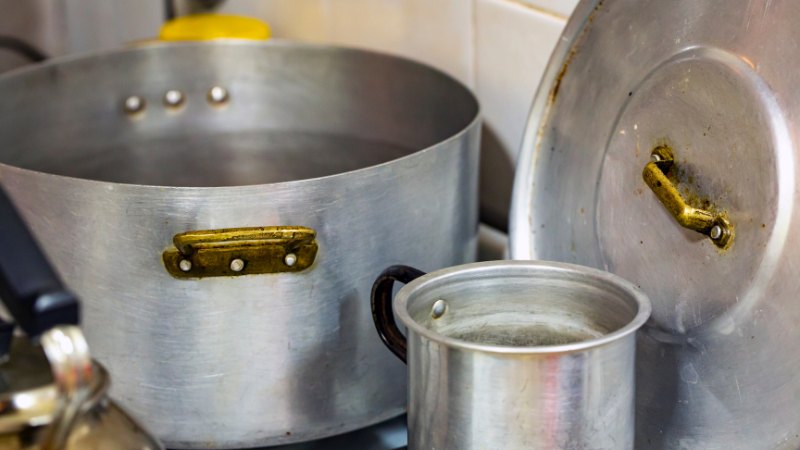 Advantages of Using Aluminum Cookware
Advantages of Using Aluminum Cookware
Disadvantages of Using Aluminum Cookware
-
Prone to Oxidation: Aluminum is susceptible to oxidation in acidic or alkaline environments, forming aluminum oxide, which can be harmful to health.
-
Not Safe for All Foods: Aluminum cookware is not recommended for cooking highly acidic dishes like tomato-based sauces, tamarind, or fermented rice dishes as the acid can dissolve aluminum, forming toxic compounds.
-
Prone to Warping: Aluminum pots and pans can easily warp when subjected to sudden impact or rapid heating.
-
Not Induction Compatible: Standard aluminum cookware is not compatible with induction cooktops.
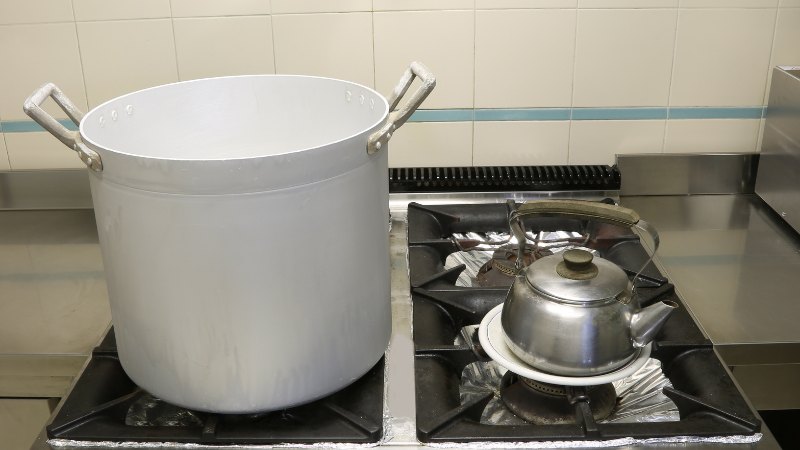 Disadvantages of Using Aluminum Cookware
Disadvantages of Using Aluminum Cookware
2 How to Choose the Best Aluminum Cookware
To select the best aluminum cookware, consider the following factors:
Material
-
Opt for aluminum cookware made from high-quality aluminum alloy containing at least 98% pure aluminum. This material ensures durability, safety, and resistance to oxidation during use.
-
Avoid recycled aluminum cookware as it may contain harmful impurities.
Thickness
-
Choose aluminum cookware with a thickness suitable for your intended use. Thicker cookware is more durable and retains heat better but tends to be more expensive.
-
For general cooking purposes, select pots and pans with a thickness ranging from 2.5 to 3 mm.
-
For braising, stewing, or slow-cooking, opt for cookware with a thickness between 3 and 4 mm.
Surface
-
Look for aluminum cookware with a smooth, glossy surface free from scratches or dents.
-
The surface should be coated with a safe, non-stick layer that is easy to clean and maintains the cookware’s integrity.
Size
-
Select aluminum cookware that is suitable for your cooking needs and stove size.
-
Consider choosing a slightly larger size than your immediate requirements to accommodate larger meals.
Brand
-
Opt for reputable brands with clear origins and manufacturing processes.
-
Well-known aluminum cookware brands in Vietnam include: Sunhouse, Elmich, Silit, and Happycook.
Price
-
Choose aluminum cookware that fits within your budget.
-
Beware of extremely cheap options as they may compromise on quality.
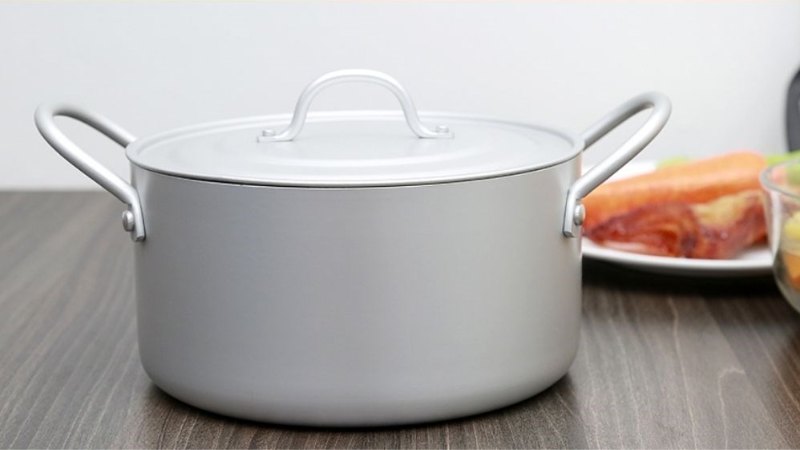 How to Choose the Best Aluminum Cookware
How to Choose the Best Aluminum Cookware
3 Tips for Using Aluminum Cookware
To ensure the longevity and safety of your aluminum cookware, keep the following in mind:
Before First Use
-
Thoroughly Clean: Wash your new aluminum cookware with warm water and soap to remove any dust or impurities from manufacturing and transportation.
-
Boil Water: Fill the pot or pan with water and bring it to a boil for 10-15 minutes. This process helps eliminate any remaining impurities and creates a protective layer on the cookware.
During Use
-
Use Low to Medium Heat: Aluminum conducts heat efficiently, so using low to medium heat is generally sufficient and prevents warping or damage to the cookware.
-
Avoid Prolonged Empty Heating: Do not leave your aluminum cookware on the stove for extended periods without food or liquid inside, as this can cause damage or warping.
-
Avoid Harsh Impact: Refrain from subjecting your aluminum cookware to harsh impacts or dropping, as it may dent or scratch the surface.
-
Use Wooden or Plastic Utensils: Opt for wooden or plastic utensils to avoid scratching the non-stick surface.
After Use
-
Clean Promptly: Wash your aluminum cookware immediately after use to prevent food residue from sticking to the surface.
-
Use Warm Water and Mild Soap: Clean your aluminum cookware with warm water and mild soap. Avoid harsh chemicals or abrasive cleaners, as they can damage the non-stick coating.
-
Dry Thoroughly: Ensure your aluminum cookware is completely dry before storing to prevent rusting.
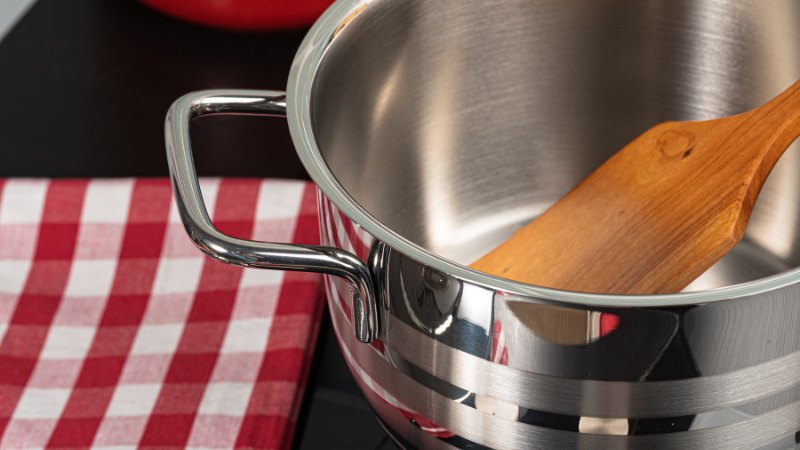 Tips for Using Aluminum Cookware
Tips for Using Aluminum Cookware
-
Avoid Cooking Highly Acidic Foods: Dishes with high acidity, such as tomato-based sauces, tamarind, or fermented rice, can dissolve aluminum and create harmful compounds.
-
Do Not Store Leftovers in the Cookware Overnight: Leftovers can oxidize and affect the quality of both the food and the cookware.
-
Replace Warped, Damaged, or Peeling Cookware: If your aluminum cookware shows signs of oxidation, warping, or if the non-stick coating starts to peel, replace it. Using damaged cookware can be harmful to your health and impact the quality of your meals.
The information provided above offers guidance on how to choose and use aluminum cookware safely and effectively. The decision to incorporate aluminum cookware into your kitchen ultimately depends on your cooking needs and financial considerations.




























